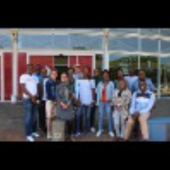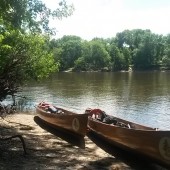Abstract: Actualization of the 17 sustainable development goals (SDGs) conceived by the United Nations in 2015 is a global challenge that may not be feasible in sub-Saharan Africa by the year 2030, except higher education play a committed role. There is need for higher education to embrace partnership and train people on the concepts of sustainability and sustainable development in the region. This paper presents a model center with curricular framework and partnership structure for the training. The Model Center for Sustainability Studies (MCSS) will enable partnerships with institutions in Africa and in advanced nations, thereby creating a global network for sustainability studies not found in sub-Saharan Africa. MCSS will train and certify public servants, government agencies, policymakers, entrepreneurs and personnel from organizations and students on aspects of the SDGs and sustainability science. It is important to add sustainability into environmental education and make environmental education a compulsory course in higher institutions and a secondary school certificate exam subject in sub-Saharan Africa. MCSS has 11 training modules that can be replicated anywhere in the world. Higher institutions in sub-Saharan Africa should follow this training perspective, to achieved SDGs, predicted 2040 against 2030.
Continue Reading
Abstract: Reporting to the public on climate change impacts, adaptation, and mitigation requires journalists to be equipped to engage with a wide range of technical content in order to communicate it in an accessible and engaging way. Recognizing the need for journalists from a wide range of backgrounds, including those from community newspapers and radio stations in South Africa, to be able to undertake this task, the South African Department of Environment Affairs in partnership with GIZ commissioned the authors to develop and deliver a four-day climate change reporting training programme. This paper presents an overview of the structure and content of the course, and details the reflections after undertaking such an endeavor.
Based on the lessons learned, and an awareness that this kind of training may take place in the context where working community-level journalists may have a low knowledge base (of both the journalistic craft, as well as the content of climate science) the following recommendations emerge: scientific training may need to be combined with basic journalistic training (depending on the participants); learning-by-doing is central to journalists building their capacity in climate reporting training; and mother-tongue delivery of material is critical to the success of such technical training courses.

We report an evaluation of a place-based education (PBE) teacher professional development program that aimed to understand the perceived impact of PBE on students and teachers, constraints to implementation of PBE in schools, and strengths and limitations of the professional development program, as identified by teachers. Nine teachers, the full 2014 cohort of participants in Wilderness Inquiry’s PBE professional development program, completed a written reflection exercise and were interviewed following the implementation of a PBE lesson or unit developed as part of their professional development program. Findings indicate that teachers perceived PBE to have several important impacts on students, including stronger engagement in learning, enhanced collaboration, and heightened significance for the concepts learned. Teachers also perceived impact on themselves, including professional growth, sense of fulfillment and an expanded repertoire of teaching approaches. However, there were perceived constraints to implementing PBE, including support from peers and administrators, time, money, weather, and the composition of the class. This research adds to a growing body of research reporting positive impacts of PBE. Teachers’ feedback on the professional development program highlighted specific aspects of an effective professional development program. An enhanced understanding of the benefits of and challenges to PBE and program characteristics that maximize teachers’ time at a professional development program will help educators and curriculum developers to better support, develop, and encourage the implementation of PBE in standardized curriculum.
Continue Reading